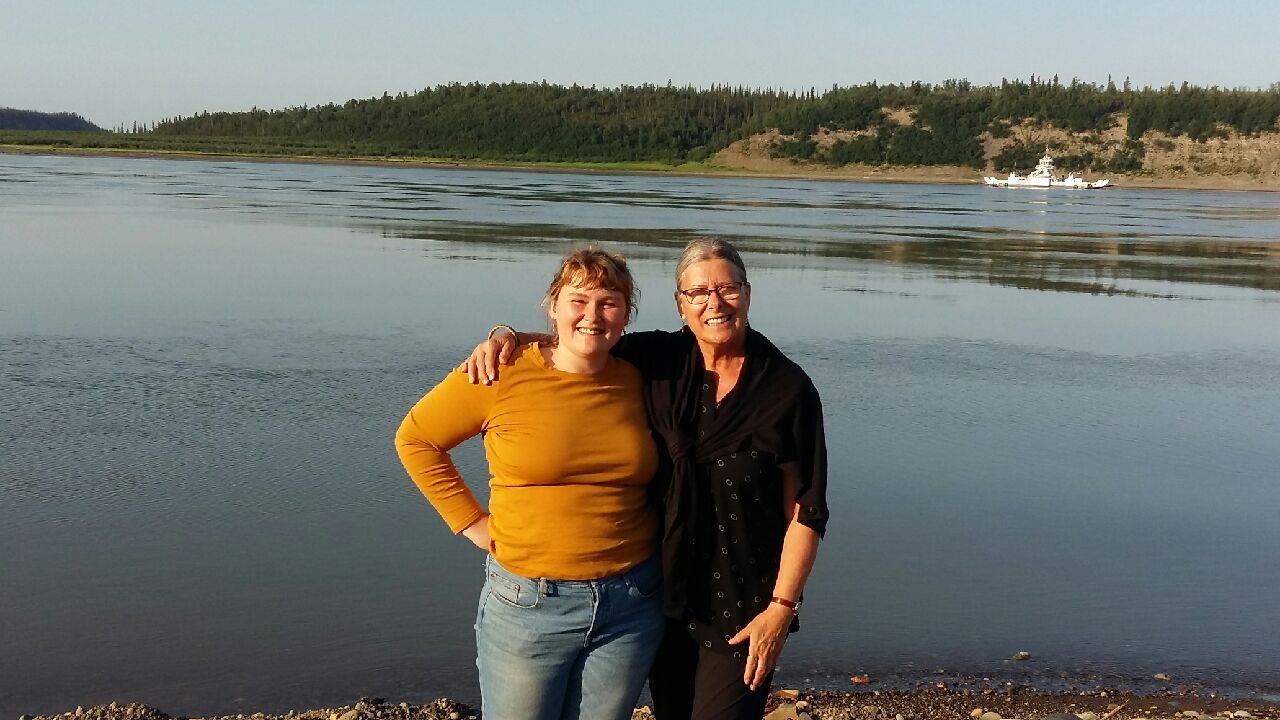
Allison Forbes is a fourth-year nursing student at Aurora College. In April 2019, she was awarded the inaugural Edets’seèhdzà Studentship, an award funded by Hotıì ts’eeda and Aurora College. Edets’seèhdzà [eh-dey-tsay-zah] means “stepping forward to challenge yourself” in the Tłı̨chǫ language.
The award allowed Allison to spend the summer working with Dr. Pertice Moffitt of Aurora College on the Government of the Northwest Territories Approach to Action Against Family Violence Research Project. In Allison’s words:
“Having had the opportunity to participate as a research assistant on a number of research projects through the Aurora Research Institute, I jumped at the opportunity to apply for the Hotıì ts’eeda and Aurora College Edets’seèhdzà Studentship. Working on health research over the summer allowed me to get my hands dirty and be more submersed in the process, and enabled my own academic growth in a way that would never have been possible otherwise.
Through the studentship, I worked on the GNWT Approach to Action Against Family Violence research project with Dr. Pertice Moffitt of Aurora College. Participation of Indigenous community members was greatly important in the research. I came to understand how involving the community in preparation and facilitation of focus groups was crucial, and I have come to see how this process of engagement is essential in deconstructing the hierarchal and colonial processes that are potential when research is conducted. The studentship deepened my understanding of how inappropriate it would be to be present in a community, seeking the stories and lived experiences of community members, without having engaged with community members to ensure that permission was granted to conduct the focus groups. No progress could be made without community members because they are the knowledge holders, the experts, and the ones making the meetings possible. Involvement of Indigenous community members was central to the focus groups. Indigenous participants helped facilitate planning the location and contacting participants in the community who held knowledge on the research topic, they helped engaged with the researchers in discussion of the research topics during focus group discussions, and they informed us on the best ways to reciprocate the knowledge once the focus group process has been completed. By participating in this research I deepened my understanding of approaches and strategies to address family violence, and learned how research can contribute to creative, relevant, meaningful, and evidence-based practice responding to real local needs.
My understanding of the unique character of each community, the unique perspectives of community members, and the unique needs in each community is richer than it has ever been. As a non-Indigenous nursing student who has made a home in the Northwest Territories, this is essential to my understanding of how to be an excellent nurse in the north. It is central in providing culturally competent care and I would not have been able to grow in this way if I had needed to work a different job to support my financial needs. I now clearly see the need and potential for evidence-based practice to have a positive impact on people accessing health care and social services, and to me, that is where the process become the most exciting. I am very grateful to have had the opportunity to step forward and challenge myself through the Edets’seèhdzà Studentship, and I am excited for other individuals to have this opportunity in the future. Mahsi Cho!”

Allison with Dr. Pertice Moffitt of Aurora College.
